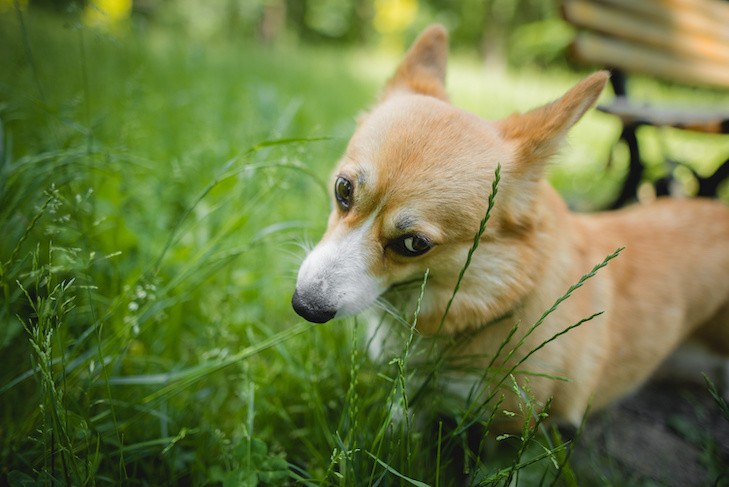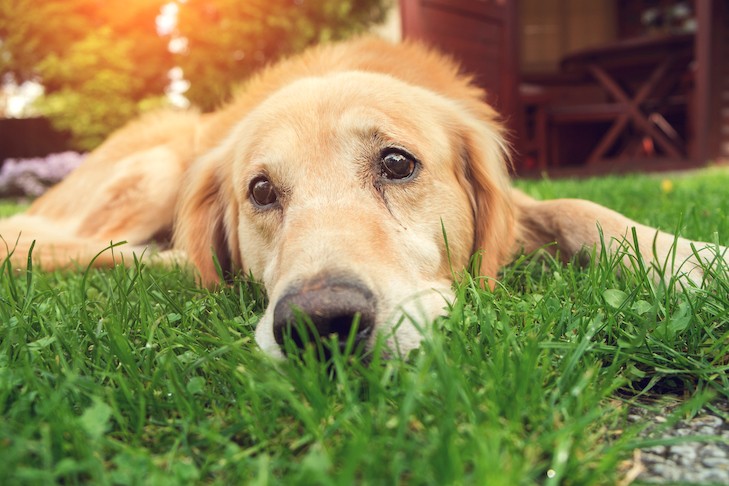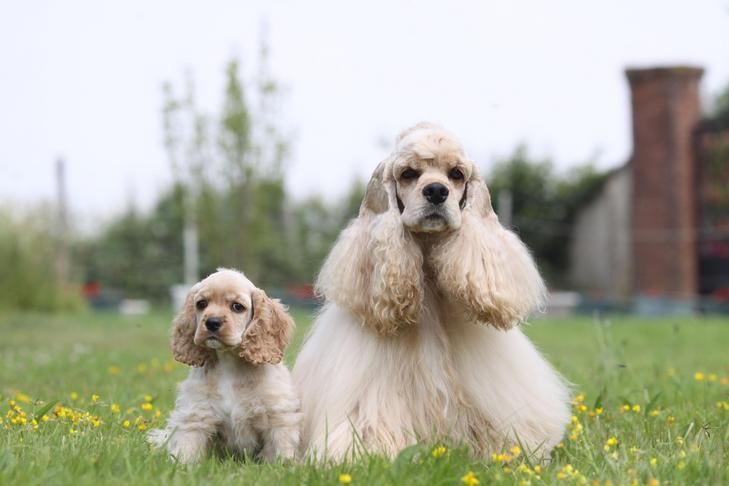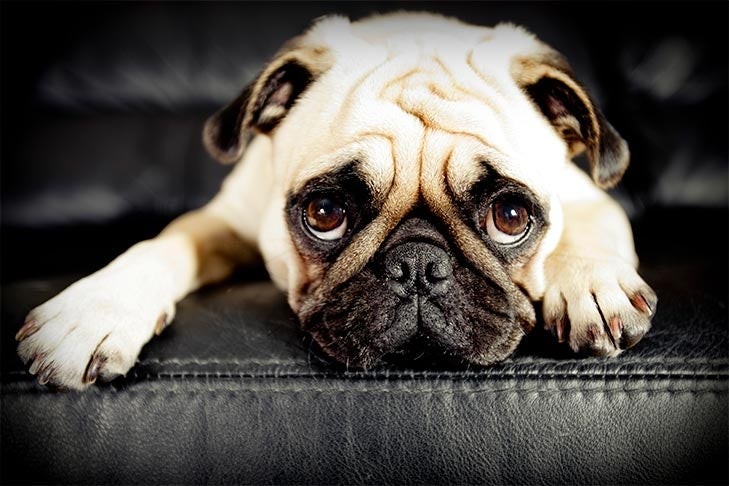Why Are My Dogs Eating Poop? This is a common and understandably disturbing question for many dog owners, and WHY.EDU.VN is here to provide answers. Coprophagia, or stool eating, can be caused by behavioral issues, dietary deficiencies, or underlying health conditions. Discover the reasons behind this behavior and effective strategies to stop it, including dietary adjustments, training techniques, and environmental management, ultimately promoting better canine health and hygiene. Explore practical tips and expert advice to address this challenging issue.
1. Understanding Coprophagia: Why Dogs Eat Poop
Coprophagia, pronounced kop-ruh-fey-jee-uh, is the scientific term for the habit of eating poop. It’s a behavior that disgusts most dog owners, but it’s relatively common among canines. At WHY.EDU.VN, we understand your concerns and are dedicated to providing information to help you address this issue.
-
The Science Behind It: While the exact reasons for coprophagia are still being studied, several factors contribute to this behavior.
-
Prevalence: A study by Dr. Benjamin Hart at the University of California, Davis, revealed that 16% of dogs are “serious” poop eaters (caught eating poop five times), and 24% have been observed eating poop at least once.
-
Evolutionary Perspective: Hart suggests that eating fresh stools may be an innate behavior from ancestral canids, protecting pack members from intestinal parasites.
-
Survival Behavior: Animal behaviorist Steven R. Lindsay notes that coprophagia may be a survival mechanism evolved to cope with starvation.
2. Is Eating Poop Normal Dog Behavior?
While repulsive to humans, eating poop is a normal behavior for dogs at certain life stages. At WHY.EDU.VN, we help you differentiate between normal and problematic instances of coprophagia.
-
Natural Behavior:
- Mother Dogs: Will lick their puppies to stimulate elimination and clean up their poop for the first three weeks after birth.
- Puppies: Naturally engage in eating their own poop (autocoprophagia), other dogs’ poop (allocoprophagia), and even poop from other animals.
-
Potential Dangers:
- Eating their own poop is generally not dangerous for puppies.
- Consuming poop from other animals can lead to health problems if the stool is contaminated with parasites, viruses, or toxins.
- This behavior usually fades by the time the puppy is nine months old.
3. Unveiling The Reasons: Why Your Dog Might Be Eating Poop
If your adult dog develops coprophagia, it’s essential to identify the underlying cause. WHY.EDU.VN offers insights into the potential reasons behind this behavior.
-
Medical Conditions: Consult your veterinarian to rule out health problems such as:
- Parasites
- Drugs (e.g., steroids)
- Malabsorption syndromes
- Diabetes
- Cushing’s Disease
- Thyroid disease
- Nutrient deficiencies and caloric deficits
-
Behavioral Triggers: Environmental stress or behavioral issues can also lead to coprophagia.
- Isolation: Dogs kept alone in kennels or basements are more prone to eating poop.
- Confinement: Spending too much time in small spaces can trigger the behavior.
- Anxiety: Punishment during house training can create a vicious cycle where dogs eat poop to hide evidence but are then punished more.
- Attention-Seeking: Dogs may eat poop to get a reaction from their owners.
- Inappropriate Association With Food: Feeding near elimination areas can confuse dogs.
- Appetitive Inoculation: Puppies smelling fecal odors on their mother’s breath after cleaning them may develop the habit.
- Living With a Sick or Elderly Dog: A healthy dog may eat poop from a weaker dog to protect the pack.
4. Effective Strategies: How to Stop Your Dog From Eating Poop
Veterinarians and dog owners have found several strategies effective in reducing coprophagia. At WHY.EDU.VN, we provide a comprehensive overview of these methods.
-
Consider the Cause: The reason your dog eats poop will influence the most effective solution.
-
Consult Your Veterinarian: Essential for ongoing issues, to rule out medical conditions and potentially get a referral to a behavioral expert.
-
Vitamin Supplements:
- Theory: Dogs may eat poop due to dietary deficiencies, particularly vitamin B.
- Evidence: Studies show that fecal microbial activity synthesizes thiamine (vitamin B1).
-
Enzyme Supplements:
- Rationale: Modern diets can be high in carbohydrates and low in meat-based proteins and fats.
- Supplements: Digestive enzyme supplements containing papain can aid digestion.
-
Taste-Aversion Products:
- How they work: These products make poop less appealing through unpleasant tastes and smells.
- Ingredients: Common ingredients include monosodium glutamate, chamomile, pepper-plant derivatives, yucca, garlic, and parsley.
- Application:
- Administer stool-eating deterrents to all pets in the household to ensure their poop is unpalatable.
- Use bitter-tasting sprays directly on the poop.
-
Managing the Environment: Training and environmental management are crucial.
- Clean Living Area: Keep the dog’s area, including the yard, free of poop.
- Supervise Walks: Pick up poop immediately during walks.
- Training Cues: Teach and reinforce “leave it” and “come” commands.
- Positive Reinforcement: Reward your dog with a treat immediately after they poop to redirect their attention.
- Cat Litter Box Management: Keep the cat litter box clean and inaccessible to the dog using self-cleaning boxes or dog gates.
5. Coprophagia Facts and Insights
Understanding the nuances of coprophagia can help you address the issue more effectively. At WHY.EDU.VN, we provide key facts to consider.
-
Puppy Behavior: Generally considered part of exploring the world, with most puppies outgrowing it.
-
Stool Preference: Dogs rarely eat soft feces or diarrhea, preferring hard stools. Frozen poop is particularly appealing.
-
Study Observations by Hart:
- Multi-Dog Households: Coprophagia is more common. In single-dog homes, 20% of dogs eat poop, compared to 33% in homes with three dogs.
- House Training: Poop eaters are no harder to house train.
- Gender: Female dogs are more likely to eat poop, while intact males are least likely.
- Freshness: 92% of poop eaters prefer fresh poop (one to two days old).
- Source: 85% will not eat their own feces, preferring poop from other dogs.
- Eating Habits: Greedy eaters are more likely to eat poop.
6. Nutritional Deficiencies And Coprophagia
Nutritional deficiencies are a commonly cited reason for coprophagia in dogs. At WHY.EDU.VN, we delve into this aspect, providing a thorough understanding.
-
B-Vitamins: A lack of B-vitamins, such as thiamine, can lead dogs to seek out alternative sources.
-
Digestive Enzymes: Insufficient digestive enzymes can hinder nutrient absorption, prompting dogs to consume feces for additional enzymes.
-
Minerals: Deficiencies in essential minerals may also contribute to coprophagia, as dogs attempt to compensate for these missing nutrients.
How to Address Nutritional Deficiencies:
- Balanced Diet: Ensure your dog receives a high-quality, balanced diet that meets all their nutritional needs.
- Supplementation: Consider adding B-vitamin or digestive enzyme supplements to their diet, especially if recommended by your vet.
- Consultation: Work with your veterinarian to identify any specific nutritional deficiencies through blood tests and adjust your dog’s diet accordingly.
7. The Role of Gut Health in Coprophagia
A healthy gut is vital for nutrient absorption and overall well-being in dogs. At WHY.EDU.VN, we explore the connection between gut health and coprophagia.
- Microbiome Imbalance: An imbalance in gut bacteria can lead to poor digestion and nutrient absorption.
- Enzyme Production: Healthy gut flora aids in the production of digestive enzymes necessary for breaking down food.
- Immune Function: A compromised gut can weaken the immune system, potentially leading to unusual eating behaviors like coprophagia.
Strategies to Improve Gut Health:
- Probiotics: Supplementing your dog’s diet with probiotics can help restore a healthy balance of gut bacteria.
- Prebiotics: These provide food for beneficial gut bacteria, promoting their growth and activity.
- High-Quality Diet: Choosing a diet rich in fiber and low in processed ingredients supports optimal gut function.
8. Environmental and Behavioral Factors
Environmental and behavioral factors play a significant role in coprophagia. At WHY.EDU.VN, we examine these influences to provide a comprehensive understanding.
- Stress and Anxiety: Stressful environments or anxiety can lead to behavioral issues, including coprophagia.
- Boredom: Lack of mental and physical stimulation can result in dogs seeking out poop as a source of entertainment.
- Attention-Seeking Behavior: Dogs may learn that eating poop gets them attention, even if it’s negative attention.
- Living Conditions: Confinement, isolation, and lack of cleanliness can contribute to the problem.
How to Address Environmental and Behavioral Factors:
- Enrichment: Provide plenty of toys, puzzles, and activities to keep your dog mentally stimulated.
- Exercise: Ensure your dog gets regular physical exercise to reduce boredom and anxiety.
- Positive Reinforcement: Use positive reinforcement training methods to address anxiety and promote good behavior.
- Cleanliness: Maintain a clean living environment to reduce temptation and eliminate potential triggers.
9. Training Techniques to Prevent Coprophagia
Effective training techniques can help prevent and manage coprophagia. At WHY.EDU.VN, we provide guidance on the best approaches.
- “Leave It” Command: Teaching your dog to “leave it” can help them ignore poop and other undesirable items.
- “Come” Command: Training your dog to come when called can allow you to redirect their attention away from feces.
- Positive Reinforcement: Rewarding good behavior with treats, praise, or toys can reinforce desired actions.
- Consistent Supervision: Keeping a close eye on your dog during walks can prevent them from accessing poop.
Step-by-Step Training Guide:
| Step | Command | Action | Reward |
|---|---|---|---|
| 1 | Leave It | Place a treat on the ground and cover it with your hand. Say “Leave it.” When your dog stops trying to get the treat, reward them with a different treat from your other hand. | Praise and a treat from your hand, not the one on the ground. |
| 2 | Gradually increase the difficulty by uncovering the treat and repeating the command. | Continue rewarding with praise and a separate treat. | |
| 3 | Come | Use a leash to keep your dog close. Say “Come” in a happy, encouraging tone. | When your dog comes to you, reward them with praise, a treat, or a favorite toy. |
| 4 | Practice off-leash in a secure area, gradually increasing the distance. | Continue rewarding every successful recall. | |
| 5 | During walks, use “Leave it” when your dog approaches poop, followed by “Come” to redirect their attention. | Reward with high-value treats and enthusiastic praise. |
10. Products to Deter Poop Eating
Several products are available to help deter poop eating. At WHY.EDU.VN, we offer recommendations to assist you in making informed choices.
- Taste-Aversion Supplements: These supplements make feces taste unpleasant to dogs, discouraging them from eating it.
- Sprays: Bitter-tasting sprays can be applied directly to poop to deter consumption.
- Muzzles: In severe cases, a muzzle can prevent your dog from eating poop during walks.
Recommended Products:
| Product Type | Description | Key Ingredients |
|---|---|---|
| Supplements | Chewable tablets or powders that make feces taste bad. | Yucca, parsley, chamomile, pepper-plant derivatives, monosodium glutamate. |
| Bitter Sprays | Sprays applied directly to feces to make them unpalatable. | Bitter apple, denatonium benzoate. |
| Digestive Enzymes | Supplements that aid in digestion and nutrient absorption. | Amylase, protease, lipase. |
| Multivitamin Supplements | Provide essential vitamins and minerals that may be lacking in the diet. | B-vitamins, vitamin E, vitamin D. |
FAQ: Addressing Your Concerns About Coprophagia
At WHY.EDU.VN, we understand you have many questions about coprophagia. Here are some frequently asked questions and their answers.
-
Is coprophagia harmful to my dog? Eating their own poop is usually not harmful, but consuming poop from other animals can expose your dog to parasites, viruses, and toxins.
-
Why does my dog only eat poop from other dogs? Some dogs find the taste or smell of other dogs’ feces more appealing due to differences in diet and gut bacteria.
-
How can I tell if my dog is eating poop due to a medical condition? Look for other symptoms such as weight loss, increased appetite, vomiting, or diarrhea, and consult your veterinarian.
-
Can changing my dog’s diet stop coprophagia? A balanced, high-quality diet can help address nutritional deficiencies that may be contributing to the behavior.
-
How long does it take to stop coprophagia? It varies depending on the cause and the consistency of your efforts, but with consistent training and management, you may see improvements within a few weeks.
-
Is coprophagia more common in certain breeds? There is no specific breed predisposition, but it is more common in multi-dog households.
-
What should I do if I catch my dog eating poop? Stay calm, use the “leave it” command, and redirect their attention with a treat or toy.
-
Can anxiety cause coprophagia? Yes, stress and anxiety can be significant contributors.
-
Are there any home remedies for coprophagia? While some owners try adding pineapple or pumpkin to their dog’s diet, these remedies are not scientifically proven, and it’s best to consult with your veterinarian.
-
When should I see a vet about my dog eating poop? If the behavior is new, persistent, or accompanied by other symptoms, consult your veterinarian to rule out medical causes.
Take Action: Consulting WHY.EDU.VN for Expert Advice
Dealing with coprophagia can be challenging, but you don’t have to do it alone. At WHY.EDU.VN, we provide expert advice and personalized solutions to help you address your dog’s poop-eating habit.
- Expert Guidance: Our team of experienced veterinarians and dog behaviorists can offer tailored advice based on your dog’s specific situation.
- Comprehensive Resources: Access a wealth of articles, guides, and training tips to better understand and manage coprophagia.
- Community Support: Connect with other dog owners facing similar challenges and share your experiences and solutions.
Don’t let coprophagia ruin your bond with your dog. Visit WHY.EDU.VN today to get the answers and support you need. Contact us at 101 Curiosity Lane, Answer Town, CA 90210, United States, or reach out via Whatsapp at +1 (213) 555-0101. Our website, why.edu.vn, is your go-to resource for all your pet-related questions. We’re here to help you provide the best care for your furry friend.



